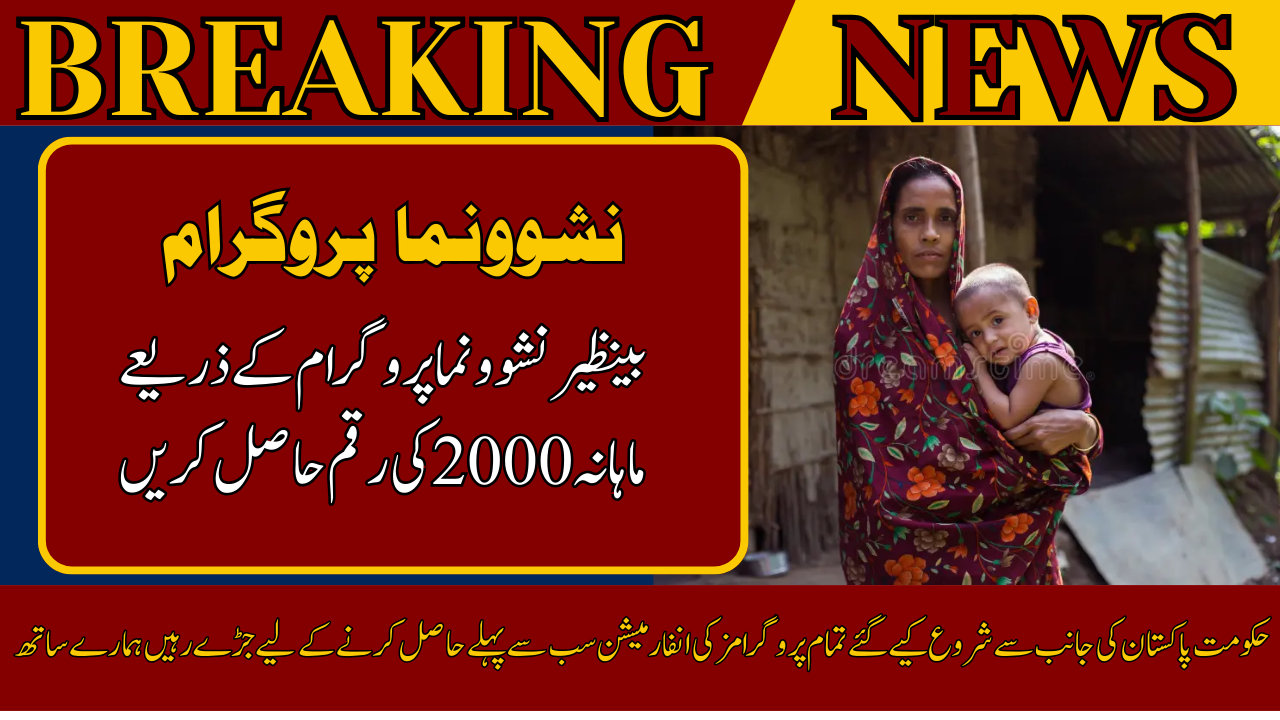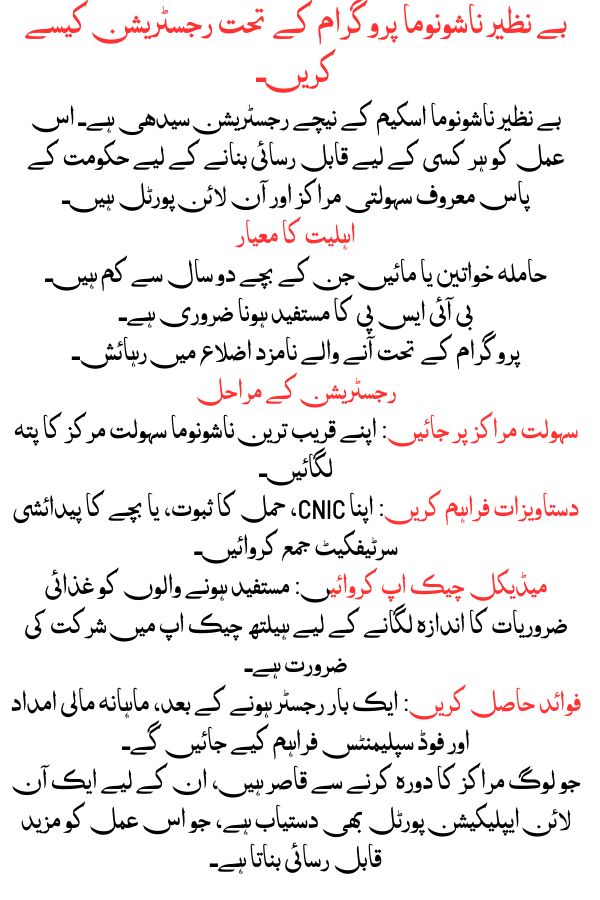Benazir Nashonuma Program 2024
The Benazir Income Support Program (BISP) and the World Food Program (WFP) have employed a two-year contract to spread the Benazir Nashonuma Program (BNP) in 2024. This initiative aims to combat hunger among pregnant women and children under two years of age across Pakistan. The program’s delay means the government’s promise to ensuring better maternal and child health, aligning with international goals to eradicate famine and improve public health.
More Read:New Payment Registration Complete Details
Quick Information Table
| Program Name | Benazir Nashonuma Program 2024 |
| Start Date | January 2024 |
| End Date | December 2025 |
| Assistance Amount | PKR 2,000/month per beneficiary |
| Method of Application | Online and through Nashonuma Facilitation Centers |
Benazir Nashonuma Program 2024
The Benazir Nashonuma Scheme, launched in 2020, is an pushy creativity under the Benazir Income Support Program (BISP). It specifically targets famine, a major health issue touching Pakistan. The extended program in 2024 will focus on the most vulnerable segments of society, including pregnant women and children under two years of age.
More Read:Ehsaas District Development Portal Registration
Key Objectives
- Reduce Malnutrition: Address chronic famine among women and children in remote areas.
- Improve Maternal Health: Provide specialized healthcare and nutritional assistance to pregnant and lactating mothers.
- Support Early Childhood Development: Ensure children under two receive ample nutrition for cognitive and physical development.
What’s New in 2024?
The extended agreement introduces the following improvements:
- Increased Geographic Coverage: More districts and remote areas will be included.
- Digitalized Processes: Applications and monitoring will shift to digital platforms for transparency.
- Enhanced Assistance Packages: Beneficiaries will receive both financial aid and nutritional supplements.
More Read:Ehsaas Kafalat Program Online Registration
How to Get Registered Under the Benazir Nashonuma Program
Registration below the Benazir Nashonuma Scheme is straightforward. The government has well-known facilitation centers and online portals to make the process accessible to everyone.
Eligibility Criteria
- Pregnant women or mothers with children under two years old.
- Must be a BISP beneficiary.
- Residency in designated districts covered under the program.
Registration Steps
- Visit Facilitation Centers: Locate your nearest Nashonuma Facilitation Center.
- Provide Documentation: Submit your CNIC, proof of pregnancy, or child’s birth certificate.
- Undergo Medical Checkups: Beneficiaries are required to attend health checkups to assess nutritional needs.
- Receive Benefits: Once registered, monthly financial aid and food supplements will be provided.
For those unable to visit centers, an online application portal is also available, making the process more accessible.
More Read:Benazir Kafalat Payment via JazzCash
Role of World Food Program in Benazir Nashonuma
The World Food Program (WFP) plays a critical role in realizing the Benazir Nashonuma Scheme . As a global humanitarian organization, the WFP brings skill in battling hunger and malnutrition.
Key Contributions by WFP
- Nutritional Support: Provides fortified food to receivers, including vital vitamins and minerals.
- Training and Awareness: Conducts workshops on maternal and child health for healthcare workers and the community.
- Monitoring and Evaluation: Ensures the program’s transparency and efficiency through regular monitoring.
- Funding and Partnerships: Cooperates with international donors to secure resources for the program.
The partnership between BISP and WFP strengthens the program’s reach and impact, addressing Pakistan’s nutritional challenges more lengthily.
More Read:CM Punjab Livestock Card todays update
Conclusion
The extension of the Benazir Nashonuma Scheme through the company between BISP and the World Food Program marks a important step in improving maternal and child health in Pakistan. With an extended scope, digitalized processes, and enhanced benefits, the program is set to address famine more well in 2024.

